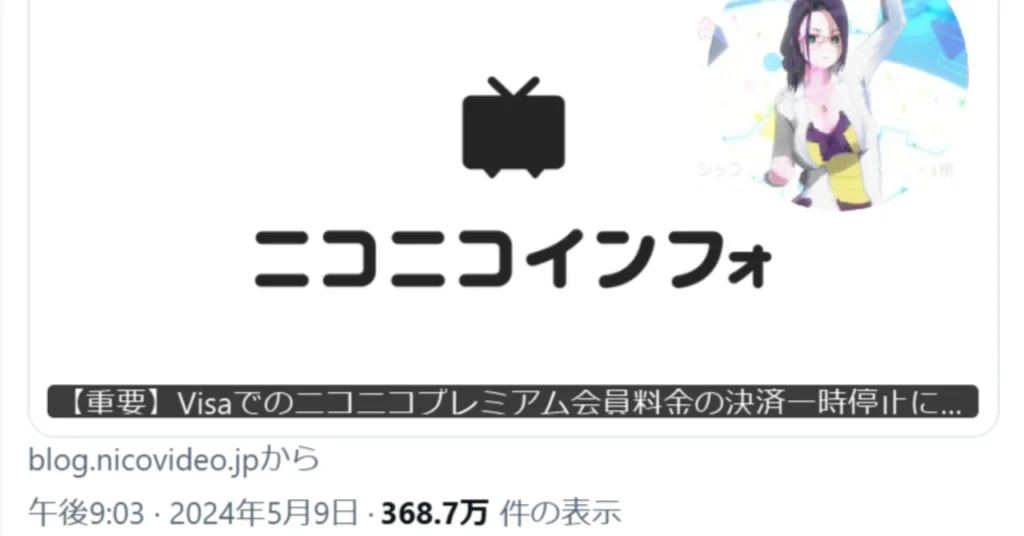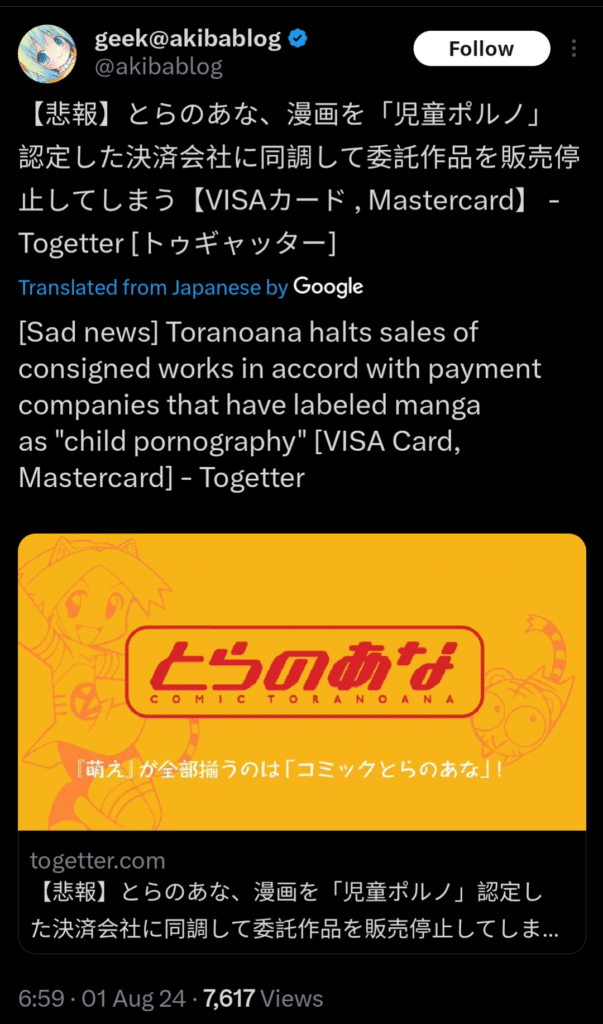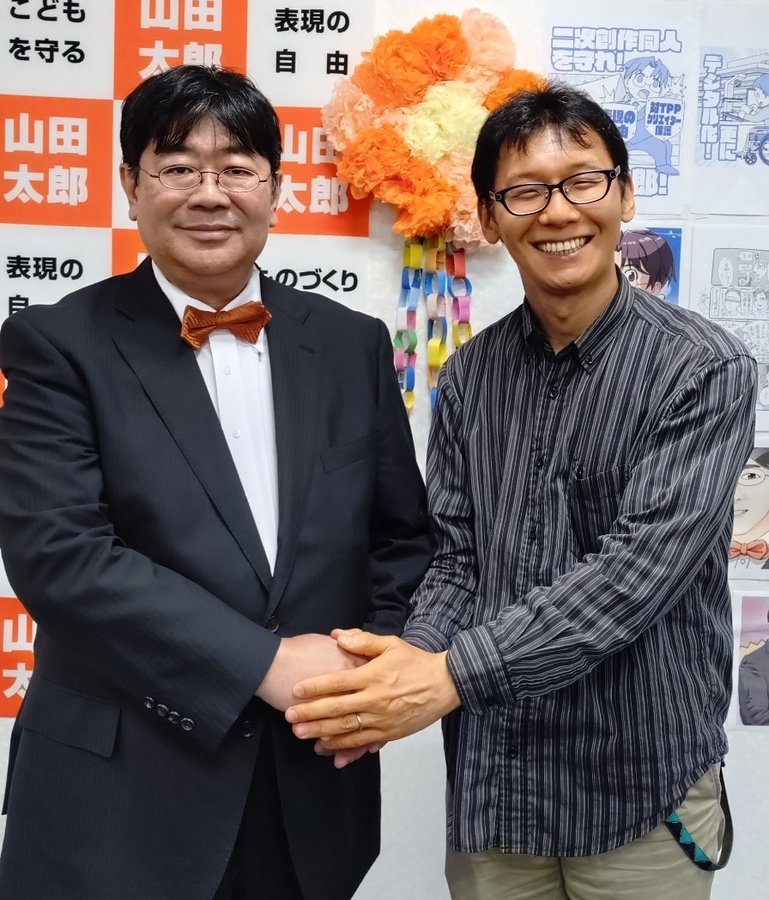
Over the past few years, American payment processors such as Visa and MasterCard have been censoring Japanese platforms and products to enforce standards that are not recognized under Japanese law.
If a website or platform features illustrations of anime girls or any content deemed “unacceptable” by these companies, they risk having their payment services cut off. This has had a severe impact on many Japanese businesses.
One prominent example is Niconico Douga, which had its Visa payment support suspended. Other major platforms such as Fantia, Pixiv, Toranoana, and DLsite have also faced similar restrictions.

In many cases, the mere presence of a standard anime-style illustration of a young girl is enough to trigger these bans—despite the fact that the content is completely legal under Japanese law. These companies are fully compliant with domestic regulations, yet foreign corporations are exerting pressure to reshape cultural expression according to their own values.

The latest victim of this censorship campaign is none other than the global gaming platform Steam. Reports indicate that payment processors, including Visa and MasterCard, have threatened to withdraw support unless Steam removes hundreds of Japanese games they label as “indecent.” This move has sparked outrage among gamers worldwide, who see it as a blatant act of cultural censorship.
However, change may be on the horizon.
In the recent election, Yamada Taro won a seat in the House of Councillors as a member of the Liberal Democratic Party. A long-time defender of freedom of expression, Yamada strongly opposes foreign interference and censorship of Japanese media. His presence in the Diet could prove to be a crucial step forward in protecting Japanese creators and businesses from what many see as overreach by foreign corporations.

With someone in office who deeply understands the issue and is committed to fighting for artistic freedom, Japanese media may finally gain a stronger voice against these questionable practices.








